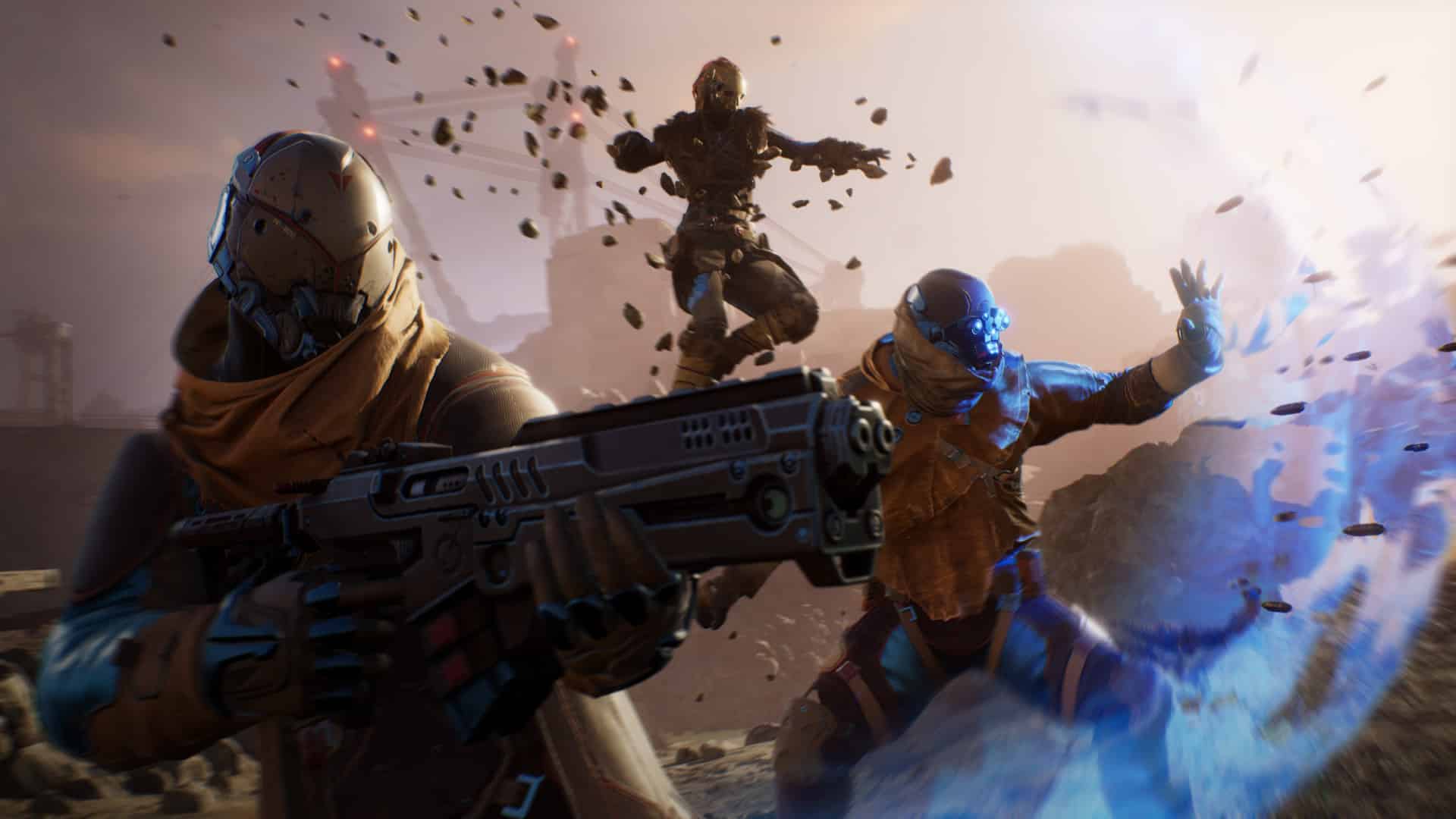Criterion has returned to Need for Speed. The change makes for a compelling headline, one that led our own Tyler Treese to proclaim that the series “is finally back where it belongs.” The developer of the most favored recent entries is back in the driver’s seat. After the misfires of the reboot, Payback and Heat, sense has prevailed — or so EA would like us to believe.
Almost simultaneously, a new trailer for Outriders emerged ahead of press previews, and many gamers seem cautiously optimistic (despite the game’s generic look) thanks to developer People Can Fly’s pedigree. Gears of War: Judgment and Bulletstorm may not have set the world on fire, but they were distinct and memorable enough to capture attention and an audience. The goodwill the studio garnered with those games continues to stoke anticipation.
However, as Nick Calandra noted in his preview, the People Can Fly of Outriders isn’t the same People Can Fly of Bulletstorm. The most prominent creative forces that developed the latter game have since moved on. Nick’s preview suggests the team may be struggling under the weight of expectation that comes with the People Can Fly brand.
That brings me back to Criterion. The Need for Speed reins were handed entirely to Ghost Games after 2013’s Rivals. Shortly afterwards, Criterion’s founders and long-time leaders Alex Ward and Fiona Sperry departed to form Three Fields Entertainment, a studio dedicated to recreating the crash-‘em-up mayhem of Burnout. Since then, Criterion has been in support mode, assisting DICE with its shooters. Again, no doubt the existing team has talent, but the bold headlines ring hollow because the studio of now is not the studio of its heyday.

As a marketing ploy, the recall of older, respected names carries clout — and has been used in many industries. The classic Bugatti vehicle brand was dragged out of the depths of time by different companies in both the 1990s and mid-2000s to create a lineage with a quality long past. The classic Nokia 3310 mobile phone was wheeled out of retirement in 2017 with a swanky modernized design by an entirely new brand owner and manufacturer. The film industry is awash in remakes, reboots, and reimaginings, trading on the popularity of the originals. And sporting teams — which naturally change over time — are inherently demonstrative of the power of brand loyalty.
Marketing that plays on nostalgia is one hell of a drug.
However, as history shows, the involvement of such vaunted brand names raises expectations that are better kept in check — at least in the video game industry. Perhaps no example is better than that of the dearly departed Visceral.
Many gamers blame EA and its alleged meddling for a perceived decline in quality in Dead Space 3, but Visceral underwent significant staff changes across the years too. Even when the studio looked beyond its acclaimed horror series it came up short, with Battlefield: Hardline and Army of Two: The Devil’s Cartel both accruing the overall lowest Metacritic averages of their respective franchises. A meddlesome publisher could be held responsible for a temporary dip in quality, but consistent stumbles point to more systemic issues.
Similar stories reverberate throughout the industry: in BioWare with Mass Effect: Andromeda and Anthem, in Square Enix with the abortive first iteration of Final Fantasy XIV, in Infinity Ward with the criticized lack of innovation in Call of Duty: Ghosts and Infinite Warfare.

In each case, the brand created expectations that were not met by the reality, and the powerful turnarounds later achieved by Infinity Ward and the Final Fantasy XIV team suggest that a combination of high-level staff changes and the gaining of additional experience in key roles is vital to improving outcomes in such situations.
That is not what is apparent with either Outriders or the Need for Speed franchise. In both of these examples, the marketing has been co-opted by brand recognition rather than the actual products or the skills of the teams behind them. The marketing specialists at publishers consciously exploit the unconscious biases of customers.
I’m downbeat because, especially in the case of Need for Speed, making a big song and dance about the brand behind the brand feels cynical. It feels like a blatant marketing move, especially when EA has made the same move countless times — the return of EA Black Box for The Run, the initial involvement of Criterion on the Hot Pursuit reimagining, the handover to Ghost Games — producing more mediocre offerings than excellent ones.
At the same time, the cynicism may not be entirely deserved. After all, Crystal Dynamics recovered well from the loss of Amy Hennig after Legacy of Kain: Defiance, and Naughty Dog has undergone several significant staff changes while continuing to go from strength to strength.
Ultimately, time will tell whether Need for Speed or Outriders manages to stand out. In the meantime, gamers need to remain aware that teams are more important than brands and that marketing is carefully designed to manipulate public mood. A name means nothing unless it is backed up by results, and the current iterations of Criterion and People Can Fly are as yet untested.






Published: Feb 16, 2020 03:30 pm